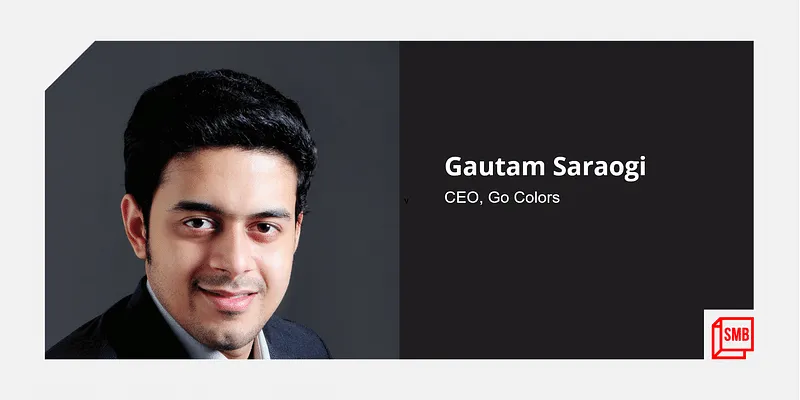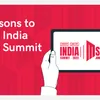After braving the COVID-19 pandemic for two years, here’s how 4 companies are charting their growth plans
As we are slowly stepping out of the COVID-19 pandemic, businesses are betting on new strategies to grow in this new normal.
Businesses are betting on new strategies to grow in the new normal. From raising funding to focusing on offline and global expansion, companies are looking at the road ahead after gathering some important lessons from the pandemic in the last two years.
SMBStory decodes some of the strategies Indian companies are deploying to grow in this period.
Rasna

One of India’s popular fast-moving consumer goods (FMCG) brands has its eyes fixed on the future.
Piruz Khambatta, who currently leads the brand, says, “I think COVID-19 is now a pretty old story. My team and I have decided to not talk about it anymore.”
Started in 1976 by Piruz’s grandfather, Rasna made and sold powdered concentrates at Rs 5 per box.
This year, the company aims to sell products in India catering to various segments, including the urban and rural masses, modern trade, and ecommerce markets.
For instance, while Rasna will market its Rs 2 packet (3.5-gram sachet) of Jal Jeera flavour in rural markets, it will feature its combo packs on ecommerce platforms. Similarly, it will sell its premium zipper packs both in the modern trade and ecommerce marketplace.
“The renewed interest among consumers wanting to take better care of their health will boost sales of Rasna in the coming times,” Piruz says.
BDR Pharmaceuticals

The Mumbai-based company played a key role during the COVID-19 pandemic by manufacturing COVID-19 drug, Remdesivir. The company’s Chairman and Managing Director, Dharmesh Shah says that at one point in time, it was producing over eight lakh units a month, with one batch taking about 80 hours to complete.
Started in 2002 by Dharmesh, BDR is an API manufacturing company. BDR focusses on four segments—oncology, critical care, neurology, and gynecology.
BDR recently received funding of Rs 685 crore from Multiples Private Equity by diluting 9.3 percent of the equity at a valuation of Rs 7,365 crore.
Going forward, plans to use the fresh funds to build a facility in the US, start manufacturing some complex molecules and get into biosimilars (an identical copy of the original product manufactured by a different company), a move which is expected to put it in the same league as Indian pharma giants such as Biocon, Cipla, Dr Reddy’s, and more.
It is also eyeing an Initial Public Offering (IPO) in the next 3-4 years.
Gangar Eyenation
Several companies clung to the Direct-to-Consumer (DTC) model during the pandemic to keep their businesses going. But one brand that refuses to be D2C-driven in the new normal is Mumbai-based Gangar Eyenation.
The company’s Director, Jigar Gangar, says that they will primarily focus on digitally enhancing its stores while tapping into the Tier II and Tier III markets, where he feels the penetration of quality eye care services is limited.
Prod him on the popularity of D2C brands and the ease of ordering eyewear from home, Jigar says he has seen ample examples of people buying online, and then coming to his stores to get the glasses fixed.
“The online model doesn’t help you decipher accurately how the spectacles fit on your nose, cheeks, and ears. They should have the perfect fit because you don’t wear specs for just five minutes, you wear them for 12-15 hours a day.”
He adds that about 12-15 stores are in the pipeline for towns in Madhya Pradesh, Karnataka, and Chhattisgarh. “Contrary to perceptions, the spending power in smaller cities is huge. Hence, it’s time to ride the next wave of digitisation in the hinterlands of India.”
GoColors

After braving the COVID-19 pandemic, the offline-heavy women’s bottom wear brand , is focusing on “cluster-based expansion” strategy. After opening its 500th store recently, it is planning to go deeper into the locations it is currently operating in.
“Out of these 500 stores, 57-60 percent of the stores are in our top markets. We go deeper into cities we are already present in,” says the company’s founder Gautam Saraogi, adding that they follow the same formula for their product categories as well.
Go Colors was started in 2010 and its stores are present in cities including Chennai, Coimbatore, Mumbai, Bengaluru, Hubli, Mangaluru, Hyderabad, and more.
Gautam shares that to grow in the new normal, Go Colors focus on three areas. First, the brand wants to continue adding 120-130 stores every year. Second, it wants to focus on developing its ecommerce strategy to become an omnichannel brand, and third, it wants to continue to innovate and introduce new products which are comfort-driven.
Edited by Affirunisa Kankudti










![[Year in Review 2021] 5 trends that dominated the MSME sector](https://images.yourstory.com/cs/21/e1da3a20368f11ea8ceed32dbcb77ccc/MSME-sector12-1639978639558.png?mode=crop&crop=faces&ar=1%3A1&format=auto&w=1920&q=75)